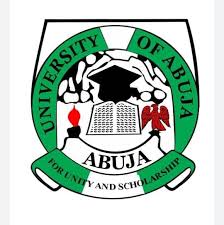As the federal university located in Nigeria’s capital city, the University of Abuja holds a special place in the country’s educational landscape. It represents not just a region but the entire nation, embodying the spirit of unity through its neutral and inclusive name.
This identity, rooted in neutrality, transcends regional and political affiliations, serving as a beacon of national cohesion.
The pronouncement of the Federal Executive Council at its meeting yesterday, renaming the University of Abuja as Yakubu Gowon University, came as a surprise to many Nigerians, especially the academic community and the people who have worked tirelessly to bring the university to the level it is today.
Former Head of State, General Yakubu Gowon, is a respected Nigerian who has dedicated his entire life to serving this great nation.
He deserves every credit given to him by President Bola Ahmed Tinubu and his cabinet for his service to the country. However, honoring him should not come at the cost of altering the identity of the University of Abuja, a university whose formation and what it stands for represent far more to Nigerians’ unity and collective heritage.
The significance of preserving the original names of federal universities is seen across the six geopolitical zones of Nigeria. These institutions have maintained names that resonate with the history and culture of their regions, symbolizing both local and national pride. For instance, in the South-South region, the University of Calabar holds historical importance in Calabar; in the South-East, the University of Nigeria in Nsukka is a symbol of academic excellence and heritage; and in the South-West, the University of Lagos (UNILAG) and Obafemi Awolowo University in Ile-Ife carry the legacies of their respective communities.
The North-Central region boasts universities such as the University of Jos and the University of Ilorin, each deeply integrated with their host communities. The North-East is represented by the University of Maiduguri, a bastion of learning and resilience in a region that has faced its share of challenges. In the North-West, Ahmadu Bello University in Zaria and Bayero University in Kano stand as prominent centers of education and culture.
These universities have remained committed to their original names, preserving the connection between their identity and the people they serve. This commitment has fostered a sense of belonging and continuity, key elements in maintaining unity across the diverse Nigerian landscape.
A stark reminder of the potential backlash that can arise from renaming universities occurred during President Goodluck Jonathan’s administration. In 2012, President Jonathan’s decision to rename the University of Lagos as Moshood Abiola University met with strong opposition from the university community and the wider Nigerian public. Alumni, students, and concerned citizens saw the change as an attempt to erase the university’s legacy. Protests erupted across the campus and were widely covered by the media, with many arguing that the move disregarded the university’s identity and undermined its role as an institution of learning and heritage. The wave of resistance was so intense that the government was forced to reverse its decision.
The lessons from the University of Lagos renaming saga highlight the importance of preserving the original identity of educational institutions. Renaming the University of Abuja after a former military head of state, as has been proposed, risks igniting a similar controversy. Such a change could erode the university’s significance as a national symbol and disrupt the sense of ownership and unity it embodies for all Nigerians.
More pressing, however, is the dire need to address the chronic underfunding of Nigerian universities. Instead of investing in education and equipping these institutions to match their contemporaries abroad, we see repeated attempts to rename federal universities, often with no tangible benefits. Renaming does nothing to improve the quality of education, upgrade teaching facilities, or support groundbreaking research. Nigerian universities continue to grapple with a lack of modern infrastructure, inadequate teaching equipment, and insufficient funding for research, leaving them unable to compete on the global stage.
Maintaining the name “University of Abuja” safeguards its neutral and inclusive character, ensuring that it continues to serve as a representation of the diverse and collective aspirations of the Nigerian people. Let the University of Abuja remain what it is—a university for the entire nation, an institution free from affiliations that could divide rather than unite.
Preserving the identity of our federal universities is not just about names; it is about recognizing and protecting the symbols that bring us together as a nation. Instead of renaming institutions, let us prioritize funding education, equipping universities with modern facilities, and empowering them to stand alongside their global peers. Let history guide us in preserving these legacies and ensuring that our universities truly become centers of learning, innovation, and unity for future generations.
Ezenwa Opara Is A Public Relations and Communication Experts and write from Lagos, Nigeria














